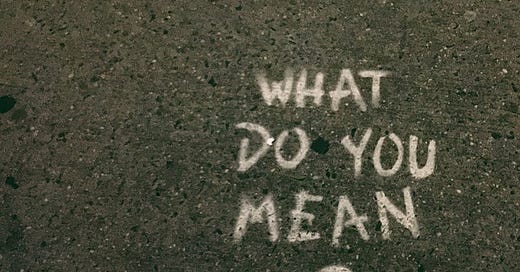Why Are There So Many African-Americans but So Few European-Americans?
To some, it seems to be a problem of semantics and to others, it's just racial indifference and worse
I am what we call in the vernacular of white-people reality, an “Irish-American.” If you did deeper, I am also arguably a Swiss-American, a German-American and I am sure if we go back far enough, there will be traces of Neanderthal — well, that is at least what my mother used to think, God rest her soul.
Black Americans in our country are referred to as “African-Americans.” Personally, I have always found this term offensive and have even had this conversation with countless friends of mine who call themselves “African-American.”
To begin with, is not such a term just another construct that makes it easier for white people to control a group of people many don’t really care about? The term also helps whites sound racially tolerant. The most ardent bigot can just say, “Well, you know, the African-Americans.” No one can find fault with him, right? The term also forces us to honor the heritage of the ancestors of the formerly enslaved even though we aren’t.
Secondly, what does “African-American” even mean? There are 54 countries in Africa. It is estimated that between 1000 and 2000 languages exist. One million or more people speak 75 different languages. Africa has the most physically varied populations of all other continents. From height, weight, facial and other morphological features, the peoples of Africa vary from not just country to country but from region to region inside of specific countries.
Chad is considered the most culturally diverse with 8.6 million residents being broken up among 100 ethnic groups while Nigeria has 500 languages registered. And yet, somehow, we lump all of these beautiful people into a big, amorphous term like “African-American.” Many of us, subconsciously or not, are okay with this gross generalization because the people from are predominantly what we “black.”
Imagine telling a Frenchman that he is really just a European.
One of the most important of these absurd assumptions, accepted implicitly by most Americans, is that there is really only one race, the Negro race. That is why the Court had to perform intellectual contortions to prove that non-Negroes might be construed as members of races in order to receive protection under laws forbidding racial discrimination. Americans regard people of known African descent or visible African appearance as a race, but not people of known European descent or visible European appearance (Slavery, Race and Ideology).
It’s so quaint and tidy for us to lump all of the darker-skinned peoples coming from the cultural kaleidoscope that is the 54 nations of Africa than to bother ourselves with learning the distinctions. Sure, when you see a foreigner on a plane, you might not know the person’s country of origin. Is the passenger German, French, Swiss, or Danish? From the moment we do learn, however, we stop calling them Europeans and respectfully refer to them as who they are.
People from Africa just get clumsily lumped into the “African” origin descriptor unless, of course, they are white, and then most people will assume they are South Africans. Our whiteness is a magnet for intellectual curiosity while the darker the skin, the less interest many of us show in learning anything about that person or their culture.
Have you ever noticed how relations between white people and Black are always relegated to “race relations?” There is seldom an allowance that permits relations to be on a cultural level. In order for people to better understand the exchange, and to find the necessary behavioral templates, they fall back on the concept of race. It spares them any unpracticed verbal faux pas while also keeping them in the safe confines of preconceived verbal cues.
When virtually the whole of society, including supposedly thoughtful, educated, intelligent persons, commits itself to belief in propositions that collapse into absurdity upon the slightest examination, the reason is not hallucination or delusion or even simple hypocrisy; rather, it is ideology. And ideology is impossible for anyone to analyze rationally who remains trapped on its terrain. [11] That is why race still proves so hard for historians to deal with historically -rather than in terms of metaphysics, religion or socio- (that is, pseudo-) biology (Slavery, Race and Ideology).
Racial differences have been an ideology that has worked wonderfully on America’s security “blankie.” Since shortly after the founding and subsequent creation of our country, America has always struggled with race. As a people, we just can’t let go of the fact that not all of the 1.2 billion who reside on the African continent speak and act the same.
It’s okay to accept their difference. It’s okay not to blend them altogether. The people of the 54 nations are different. They are proud of their heritage in the same way many of us are proud of being Irish, French, Swiss, German, or Hungary. For too many Americans, however, the sense that they feel as if they were obligated to call every “Black” person a descendant of Africa — African-American.
The term African-American is wrong for the same reasons that we don’t want to be regarded as something else. America has yet to afford its fellow citizens, the Black ones, the luxury of letting them be who they really are Americans.
If they so choose to be called a Chadian-American, Nigerian-American, Ivory-Coast-American, etc., then wonderful. There is nothing wrong with letting people be happy and evolved. We have barely been that for the past 400 years. It’s not too late. We can do the small things to make the big thing more attainable.
For all of our sake, let’s hope we can do it.



